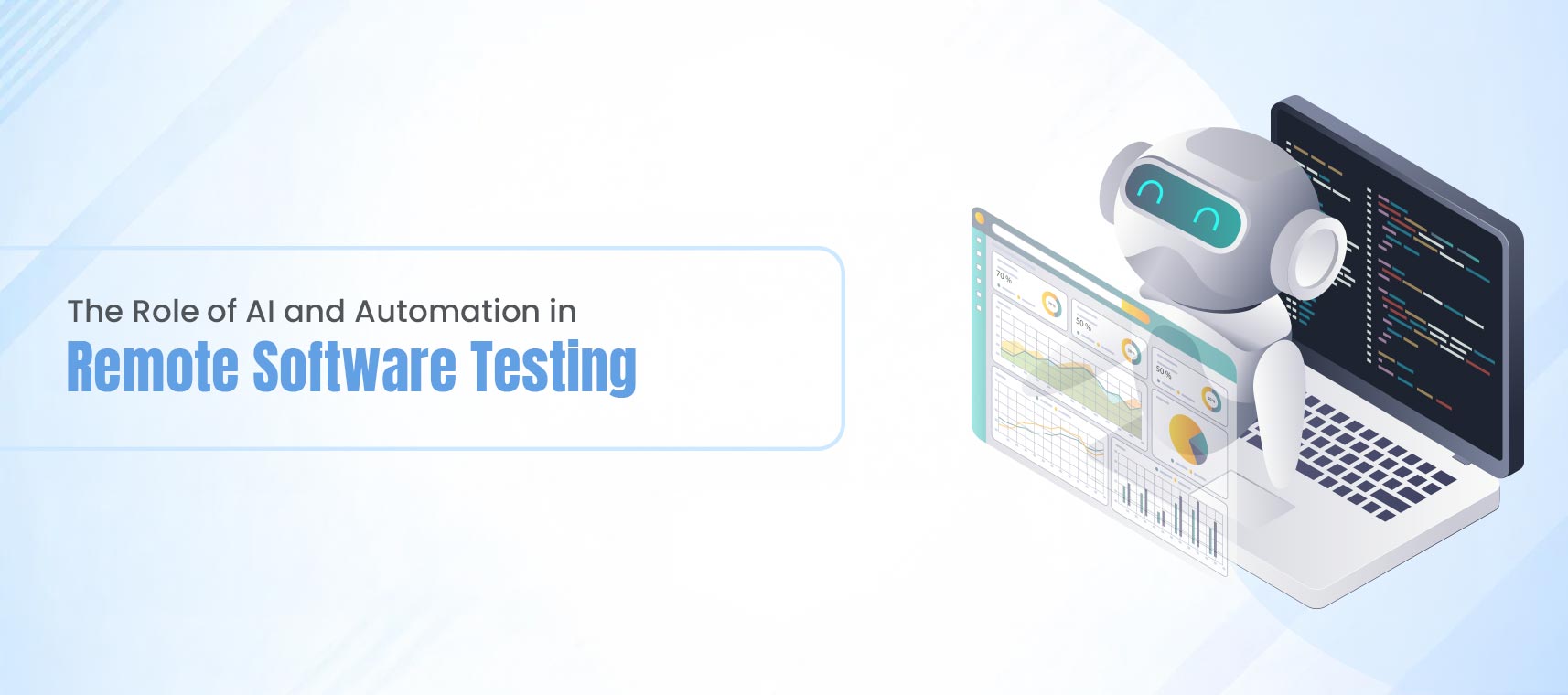
The Role of AI and Automation in Remote Software Testing
Artificial Intelligence (AI) and Automation are transforming various industries, including software testing. With the growing trend of remote work, these technologies are helping software testing teams to streamline their processes, reduce errors, and improve overall efficiency. In this article, we will explore how Artificial Intelligence Development Services and Automation Testing Services are reshaping Remote Software Testing, along with their benefits, challenges, and future possibilities.
The Evolution of Software Testing
Traditionally, software testing was a manual, time-consuming process that required a lot of effort and was often prone to human error. Testers had to carefully design, execute, and maintain test cases to ensure software quality. However, as software applications become more complex and remote work becomes more common, traditional testing methods struggle to keep up. This shift has allowed AI and Automation Testing Services to play a more significant role in modern software testing.
Key Roles of AI and Automation in Remote Software Testing
-
Automated Test Case Generation
Manually creating test cases can be time-consuming and error-prone. AI algorithms can analyze application code and user behavior to automatically generate test cases, ensuring extensive test coverage and reducing the workload on testers.
-
Intelligent Test Execution
Automation testing services simplify test execution with minimal human effort. AI-driven tools can run parallel tests across multiple environments, quickly detect anomalies, and validate outcomes efficiently, which is especially valuable for remote teams handling diverse testing scenarios.
-
Self-Healing Test Automation
One of the major challenges in Test Automation is script maintenance. AI-powered tools can identify changes in the user interface and adjust test scripts accordingly, ensuring continuous test execution without manual updates.
-
Predictive Defect Analysis
AI can predict potential defects by analyzing historical data and code changes. This predictive capability allows testers to focus on high-risk areas, facilitating early bug detection and more proactive quality assurance.
-
Security Testing
Cybersecurity threats are increasing, making security testing essential. Additionally, AI-powered tools can identify security vulnerabilities, simulate cyberattacks, and recommend security enhancements to safeguard applications from potential breaches.
Benefits of Integrating AI and Automation in Remote Testing
-
Increased Efficiency
AI and Automation Testing Services speed up the testing process by handling repetitive tasks, allowing remote teams to focus on more complex testing scenarios.
-
Improved Accuracy
By minimizing human error, AI-driven testing ensures precise and consistent results. As a result, it leads to more reliable software products.
-
Scalability
AI-driven testing tools can handle large-scale testing scenarios across multiple platforms and devices. Therefore, they are ideal for cloud-based and enterprise applications.
-
Cost Reduction
Automating testing processes reduces the need for large QA teams, as a result, it leads to cost savings in software development and maintenance.
-
Continuous Learning and Adaptability
AI-powered testing tools learn from previous tests and, as a result, adapt to new software changes, improving test efficiency and minimizing maintenance efforts.
Challenges in Implementing AI and Automation Remotely
-
Initial Implementation Costs
Setting up AI-driven testing frameworks requires investment in technology, tools, and training; therefore, it can be expensive for small businesses.
-
Data Quality and Availability
AI models rely on high-quality training data for accurate predictions. However, poor or insufficient data can lead to inaccurate test results.
-
Complexity of AI Algorithms
Understanding and managing AI-driven testing tools require specialized knowledge. Therefore, organizations need skilled professionals to develop and maintain AI testing frameworks.
-
Trust and Validation
Many companies hesitate to rely entirely on AI-driven testing due to a lack of transparency in AI decision-making. Consequently, validating AI-generated test results remains a challenge.
Future Trends in AI-Powered Remote Software Testing
-
AI-Driven Test Maintenance
In the future, AI-powered testing tools will continue to improve their self-healing capabilities. As a result, AI will automatically adjust test scripts in response to UI changes, thereby reducing the need for human involvement and further improving testing efficiency.
-
Integration with DevOps and CI/CD Pipelines
AI-powered testing tools will increasingly integrate into DevOps and CI/CD pipelines, enabling real-time testing and faster software releases. For remote teams working in agile environments, this integration will be essential for maintaining high-quality standards while accelerating the development cycle.
Conclusion
The integration of AI and Automation Testing Services in Remote Software Testing is not just a trend but a necessity for modern software development. Moreover, these technologies enhance efficiency, accuracy, and security while reducing costs and manual effort. However, organizations must address challenges like implementation costs, data quality, and algorithm complexity to maximize their benefits. As AI continues to evolve, the future of Remote Software Testing looks promising.
At TFT, we are at the forefront of this transformation, leveraging Artificial Intelligence Development Services to revolutionize software testing practices.
Recent Blogs
- RPA Software Solution: Transforming Business with Smarter Automation Tools
- Salesforce Implementation Services: Meet Your New AI Teammates
- Salesforce Services: How Modern Engineering Is Revolutionizing CRM Solutions
- Salesforce Implementation Services: AI-First Integration with Agentforce for Smarter API Documentation & Governance
- 5 Benefits for App Success: Hire Remote React Native Developers
Categories
- Agritech (1)
- AR/VR (5)
- Artificial Intelligence (55)
- Machine Learning (1)
- Blockchain (4)
- Business Intelligence (3)
- CRM (5)
- SalesForce (4)
- Data Engineering (8)
- Data protection (2)
- Development (102)
- Golang Development (15)
- Python Web Development (9)
- React JS (5)
- React native (10)
- Devops (3)
- Hire Developers (3)
- Internet of Things (IoT) (5)
- Kubernetes (2)
- Machine Learning (2)
- Mobile App Development (44)
- Node.js (7)
- outsourcing (7)
- Partnership (4)
- Performance Testing (3)
- RPA (21)
- Security (24)
- Strategy (1)
- Testing (110)
- Accessibility Testing (2)
- Automation Testing (22)
- Dynamic Testing (1)
- Manual Testing (3)
- Mobile App Testing (13)
- Offshore Software Testing (6)
- Penetration Testing Services (13)
- QA testing (16)
- Remote Software Testing (7)
- Software Testing (19)
- Website Design (22)